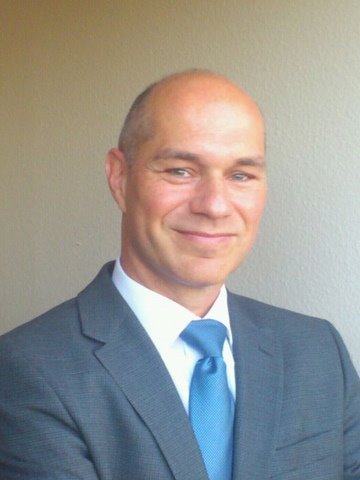14 April, 2016
ETNO ThinkDigital interview - Making 5G a reality for the connected consumer
Andreas Geiss, Head of Unit for Spectrum Policy in DG CONNECT: “5G is much more than just higher speeds, it is about new services and business cases (the verticals). Connected vehicles, remote health care and smart cities are just a few examples of the wider scope we are looking at.” #ThinkDigital
 Spectrum is at the heart of the EC’s Digital Single Market strategy. Why?
Spectrum is at the heart of the EC’s Digital Single Market strategy. Why?
One of the key objectives in our Digital Single Market Strategy is connectivity, i.e. the ability of being pervasively connected to the Internet with very high quality of service. Today, video accounts for 51% of mobile downstream traffic and many of the digital services that consumers want are apps on smart phones, tablets and other wireless devices. Without sufficient spectrum consumers will not be able to access these services with their wireless devices or their services will be slow and of insufficient quality. Thus, Europe needs to find appropriate spectrum, harmonise and assign it so that it becomes available in a coordinated and timely manner across the whole EU market.
What are the next steps in terms of Spectrum Policy? What challenges do you see along the way?
Wireless connectivity requires access to spectrum - with the bands below 1GHz being the sweet spot for both wide coverage and high speeds. We are currently working with the Member States and the European Parliament in order to make available the 700 MHz band for wireless broadband. This spectrum is currently used by broadcasting networks and wireless microphones. The challenge is to find the right timing for the transition of this band, while taking into account the impact on all involved parties. The Commission recently published a comprehensive impact assessment which was preceded by thorough stakeholder consultations. The challenge, but also the opportunity now is to come to a timely conclusion of this work, in order to provide certainty as to the future use of the UHF band and give stakeholders time to prepare and adapt, thereby minimising the cost of change and maximising consumer benefits in line with the DSM objectives.
The Commission's UHF proposal is just a first step of a forward-looking spectrum policy. We have a strong ambition for the review: to achieve the necessary level of coordination on making appropriate spectrum available to the EU home market towards 5G in a timely and coherent manner. Common policy objectives, coherent licence conditions and convergent rules of spectrum assignment are obvious targets for an EU-level change, enforced through a more effective institutional set-up.
People, businesses and objects are becoming more and more dependent on the Internet. What needs to happen now to ensure widespread, high-speed and reliable connections?
We can see from data collected in the EU concerning 4G rollout that there are still large differences among Member States in terms of access to wireless broadband. More needs to be done to ensure that rural areas have access to high quality wireless broadband services. Furthermore, I believe that more needs to be done in terms of assessing and measuring coverage in a harmonised way across Europe and of ensuring that license conditions for mobile networks are used to achieve ambitious coverage targets, in order to reach people where they live, work and travel. The Commission is contributing to a better assessment of coverage through an ongoing study and its proposal on the 700 MHz band currently under discussion in Council and European Parliament.
Commissioner Oettinger said that making 5G a reality in Europe is the most important goal of his mandate. What is currently on the table?
We are working in close collaboration with stakeholders on making 5G a reality. For us 5G is much more than just higher speeds, it is about new services and business cases (what we often call the verticals). Connected vehicles, remote health care and smart cities are just a few examples of the wider scope we are looking at. The Commissioner has announced an action plan on 5G and that is what we are working on now with the support of the stakeholders, who are participating in the round table discussions we have organised. The review of the telecoms framework offers a unique opportunity to ensure spectrum management will contribute to the timely deployment of 5G networks.
By Joanne Mazoyer for ETNO #ThinkDigital, Brussels, 14.04.2016
***
Andreas Geiss, Head of Unit for Spectrum Policy in DG CONNECT of the European Commission
Andreas Geiss is Head of Unit for Spectrum Policy in DG CONNECT of the European Commission and is the Chair of the Radio Spectrum Committee. He has been working for the European Commission since 2002 in various positions. His responsibilities have included mobile communications, the Radio Spectrum Policy Programme and negotiations with the Member States in different settings. Before joining the European Commission he worked for the European Radiocommunications Office (ERO), where he was project leader for projects dealing with terrestrial and satellite communications. He has been involved in the European preparations for World Radiocommunications Conferences since 1995. Andreas has a master's degree in electrical engineering and started his professional career in 1991 at the German Regulatory Authority in the area of telecommunications.


